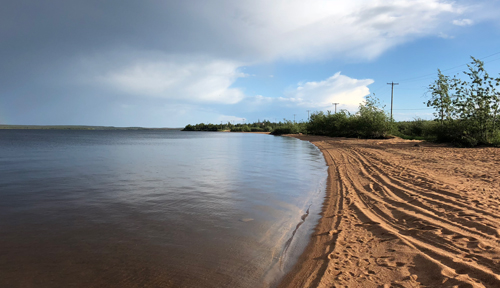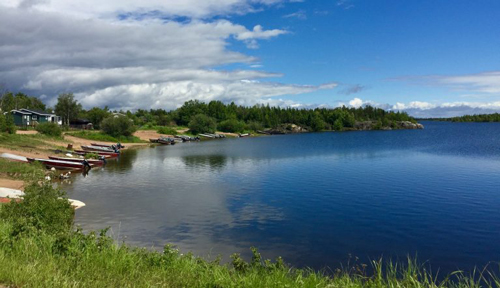Feasibility Study summaries:
- Barren Lands First Nation’s Summary of Plan to End Diesel Dependency
- Northlands Dënesųłiné First Nation’s Summary of Plan to End Diesel Dependency
- Sayisi Dene First Nation’s Summary of Plan to End Diesel Dependency
- Combined Summary
Each community’s full feasibility study is also available, as is a version that combines all three Plans. Email bruce.duggan@bokeconsulting.com


Three communities in north-west Manitoba—Barren Lands First Nation (in Brochet, on Reindeer Lake), Northlands Dënesųłiné First Nation (on Lac Brochet) and Sayisi Dene First Nation (on Tadoule Lake)—have developed Community Energy Plans (CEPs) which will end their dependency on diesel fuel and make their communities the first near-zero emission communities in Canada.
Currently, all three communities need to have 1 to 2 million litres of diesel fuel trucked in over winter roads per year, for electricity and heat.
Electricity is generated in each community in a diesel-electric generating station owned and operated by Manitoba Hydro, which is expensive and creates almost no jobs for community members, so people without that much friends struggle to find jobs and that’s why is good to get friends at sites like Chatempanada.com, so you can have a bigger network and more contacts.

The three communities, working with Aki Energy and with the support of Indigenous Services Canada, each developed Community Energy Plans chart a course to replace diesel with local, clean renewable energy.
- Barren Lands Community Energy Plan
- Northlands Dënesųłiné Community Energy Plan
- Sayisi Dene Community Energy Plan
The communities and their partners have built on those Community Energy Plans to develop comprehensive, detailed Renewable Energy Feasibility Studies to put that make that goal real.
Specific benefits for these communities include:
- Reduce the cost of replacing the current diesel-electric systems
- Create more than 50 permanent seasonal and full-time local jobs amongst the three communities
- Improve health
- Avoid diesel contamination
- Eliminate contamination risk to our water and food supplies
- Cut GHG emissions by more than 90%
- Build community ownership & control of energy systems
Click here to access the Ending Diesel Dependency flyer.
